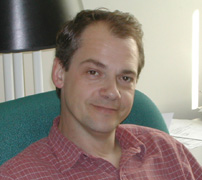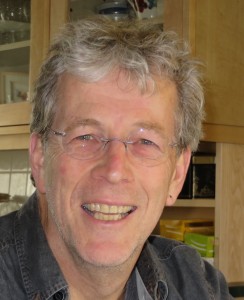The AACBT National Conference Committee are pleased to announce two concurrent workshops on Saturday 27 October, at “Royal on the Park”, 9.00am – 5.00pm.
Tickets: AACBT Student Member $110, AACBT Member $325, Non-member $455.
In addition to the two concurrent workshop hosted at national conference, we also have a workshop in Brisbane “An introduction to compassion-focused therapy” with Professor James Bennett-Levy & Tobyn Bell on Wednesday 24 Oct 2018. This workshop will be repeated in Adelaide on Monday 2 Nov 2018.
University of California
Cognitive Behaviour Therapy for Transdiagnostic Sleep Problems in Clinical Practice: Basics & Beyond
Sleep and circadian problems are among the most prevalent problems. They undermine our emotional functioning, our health, our cognition and they contribute to behavioural problems such as risk taking and substance use. Much research on sleep and circadian problems has been disorder-focused—treating a specific sleep problem (e.g., insomnia) in a specific diagnostic group (e.g., depression). However, real life sleep and circadian problems are not so neatly categorized. Insomnia often overlaps with hypersomnia, delayed sleep phase and irregular sleep-wake schedules. This core observation was one of the factors that motivated us to develop the Transdiagnostic Sleep and Circadian Intervention (TranS-C). The goal of TranS-C is to provide a treatment approach for a variety of sleep problems comorbid with a variety of psychological and physical disorders, and that can be used confidently by a variety of mental health professionals.
TranS-C draws from and combines CBT-I (e.g., Morin et al., 2006) with elements from three existing evidence-based treatments: Interpersonal and Social Rhythm Therapy (Frank et al., 2005), chronotherapy (Wirz-Justice et al. 2009) and Motivational Enhancement (Miller & Rollnick, 2012).
TranS-C is a modular approach to reversing and maintaining psychosocial, behavioural and cognitive processes via 4 cross-cutting modules, 4 core modules and 7 optional modules. The four Cross Cutting Modules are: case formulation; education; behaviour change and motivation; goal setting. The four Core Modules are: establishing regular sleep-wake times including learning a wind-down and wake-up routine; improving daytime functioning; correcting unhelpful sleep-related beliefs; and maintenance of behaviour change. The Optional Modules are: improving sleep efficiency; reducing time in bed; dealing with delayed or advanced phase; reducing sleep-related worry/vigilance; promoting compliance with CPAP/exposure therapy for claustrophobic reactions to CPAP; negotiating sleep in a complicated environment and reducing nightmares.
EDUCATIONAL GOALS AND OBJECTIVES:
- Participants will be able to describe key aspects of the biology, psychology and social context of the sleeper;
- Participants will be able to describe how to assess sleep in their patients;
- Participants will be able to describe how to complete a case conceptualization for a patient suffering from a sleep problem;
- Participants will be able to describe the cross-cutting and core modules of TranS-C;
- Participants will be able to think through how to adapt CBT-I for teens and comorbid cases, particularly patients with a mood disorder.

Boston University
Cognitive Behavioural Therapy (CBT) has been an enormous empirical and practical success over its more than 50+ year history. With evidence-based care dramatically changing, it is important for CBT to change as well.
For decades, evidence-based therapy has been defined in terms of scientifically validated protocols focused on DSM syndromes. That era is now passing away.
This workshop will feature didactic presentations, demonstration of practical strategies, and exercises in a new transdiagnostic process-based form of CBT which utilizes the core competencies of CBT to integrate the behavioural, cognitive, and acceptance and mindfulness wings of the tradition.
Additional goals include:
- Gaining an up-to-date understanding of the transdiagnostic core processes;
- Using a functional diagnostic system that has treatment utility;
- Establishing more progressive models and theories in clinical practice.
In addition to the Saturday workshop at the conference, we are pleased to be hosting two workshops with Professor James Bennett-Levy & Tobyn Bell “An introduction to compassion-focused therapy”.

Brisbane ticketing – Wednesday 24 Oct 2018 – available here.
Adelaide ticketing – Friday 2 Nov 2018 – available here.
Compassion-focused therapy (CFT) is an integrative psychotherapy model that focuses on the cultivation and application of compassion for both self and others. CFT integrates cognitive-behavioural therapy techniques with evolutionary, developmental and social psychology; affective neuroscience; and Buddhist psychology. The approach was originally developed for clients with high-levels of self-criticism and shame and has a growing evidence-base for a variety of clinical disorders and presentations. Practicing compassion has been shown to have powerful effects on physiological, psychological and social processes, specifically in the regulation of threat-focused emotional experiences and the development of a caring orientation to suffering.
This workshop will introduce the core principles and practices of CFT which include an evolutionary functional analysis of emotions, a formulation of threat-based experiences and protective behaviours, the use of compassionate imagery to stimulate soothing and affiliation, and the development of the ‘compassionate self’. Participants will be guided in experiential exercises with a focus on developing compassion for both themselves and their clients. The workshop will also provide participants with an opportunity to formulate and address self-criticism using CFT interventions.
This workshop is suitable for therapists from any theoretical background. The workshop will include interactive teaching, practical exercises, self-reflection and group discussions. No prior knowledge of CFT is required.
In this workshop participants will:
- Learn what compassion is (and isn’t)
- Be able to apply an evolutionary functional analysis to emotions
- Be able to identify common fears, blocks and resistances to compassion
- Have an experience of key CFT exercises to train the mind in compassion

